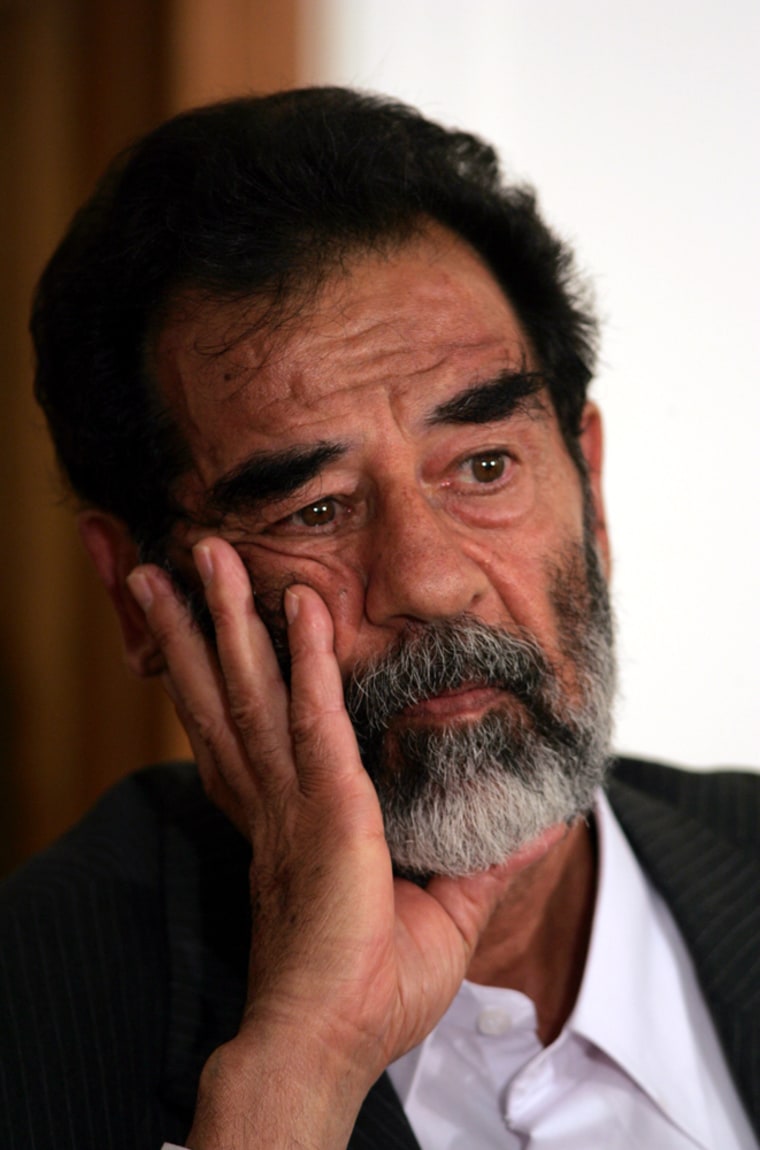Deposed Iraqi President Saddam Hussein is depressed and has begged the Iraqi government for mercy, Iraq’s Prime Minister Iyad Allawi said in an interview published on Monday.
“He is distraught and depressed,” Allawi said of Saddam, the man who was Iraq’s president for 24 years and is awaiting trial for war crimes, crimes against humanity and genocide.
“Saddam and his colleagues are not the giants that the media sometimes talks about,” Allawi said in an interview with the pan Arab al-Hayat newspaper. “Saddam sent us an oral message in which he begged for mercy. He said that they were working in the public interest and did not mean any harm.”
The portrait painted by Allawi differed sharply from that in a New York Times account published over the weekend, based on interviews with U.S. and Iraqi officials who have visited the former dictator in his air-conditioned 10-by-13-foot cell on the grounds of one of his former palaces.
Newspaper says Saddam unrepentant
The newspaper said that according to its sources, Saddam has refused to acknowledge wrongdoing or show remorse for the people who were killed during his 24-year rule, whom he labels as traitors.
At every encounter, the officials told the Times, Saddam insists he is still the constitutionally elected president of Iraq.
In his interview with the al-Hayat newspaper, Allawi also:
- Said he has survived four assassination attempts since his interim government came to power in June, the last just five days ago when his guards became suspicious of a car outside Baghdad’s Green Zone compound housing the government and the U.S. and other embassies.
The car then blew up and a battle between gunmen and his guards ensued. Two non-Iraqi Arabs were arrested, he said.
Allawi would not give their nationality, but said they belonged to Islamist militant groups.
- Described Abu Musab al-Zarqawi, a Jordanian militant who Washington says is allied to al-Qaida, as “despicable above all for the Iraqi people and for Iraq.”
“For someone who appears to be connected with international organizations to come along and threaten Iraq’s prime minister, whoever he may be, is unacceptable,” Allawi said, referring to al-Zarqawi’s threat to kill him.
Al-Zarqawi’s Tawhid and Jihad group has claimed responsibility for most of the bloodiest suicide attacks in Iraq since Saddam was ousted in the U.S.-led war last year.
- Struck a cautiously positive tone on relations with neighboring Iran, which has been angered by U.S. and Iraqi charges it has been stirring up tensions in Iraq.
Positive tone toward Iran
Allawi said what he called Iranian interference in some Iraqi affairs did not mean Iran’s government was involved.
“Rather it comes from some circles that support particular religious tendencies,” he said.
“That was the case with the Moqtada al-Sadr issue, which we treated not as a matter of a religious movement but as a violation of the rule of law, which is something we cannot tolerate,” Allawi said.
Some politicians in Iran, which is Shiite dominated, have said it should actively support rebel Iraqi Shiite cleric al-Sadr’s movement in its battles with U.S. forces and uprisings in the holy city of Najaf. Iran officially says it supports no group in Iraq.
Allawi is due to visit Tehran, which has given his interim government lukewarm backing, but no date has been set.
